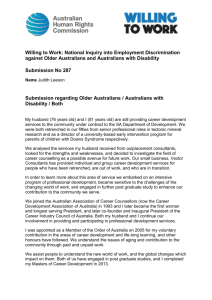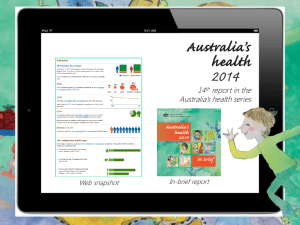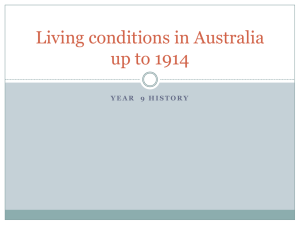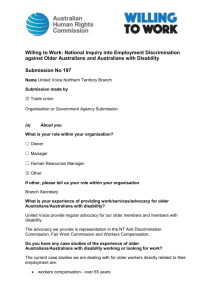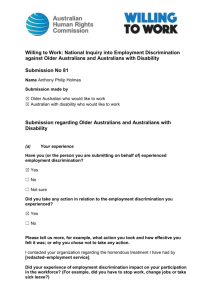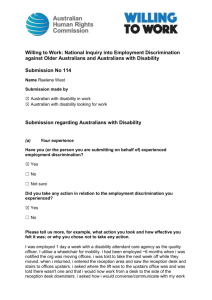Submission No 66 - Neil McAllister
advertisement
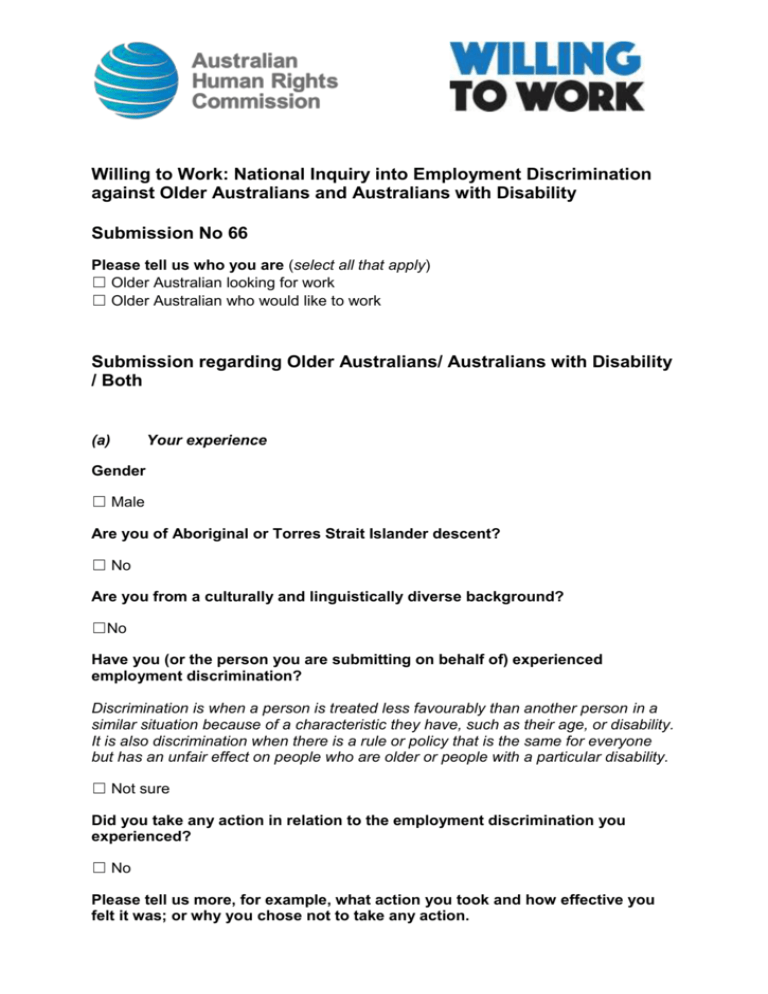
Willing to Work: National Inquiry into Employment Discrimination against Older Australians and Australians with Disability Submission No 66 Please tell us who you are (select all that apply) ☐ Older Australian looking for work ☐ Older Australian who would like to work Submission regarding Older Australians/ Australians with Disability / Both (a) Your experience Gender ☐ Male Are you of Aboriginal or Torres Strait Islander descent? ☐ No Are you from a culturally and linguistically diverse background? ☐No Have you (or the person you are submitting on behalf of) experienced employment discrimination? Discrimination is when a person is treated less favourably than another person in a similar situation because of a characteristic they have, such as their age, or disability. It is also discrimination when there is a rule or policy that is the same for everyone but has an unfair effect on people who are older or people with a particular disability. ☐ Not sure Did you take any action in relation to the employment discrimination you experienced? ☐ No Please tell us more, for example, what action you took and how effective you felt it was; or why you chose not to take any action. I believe that I have been unsuccessful in obtaining interviews for [redacted] public service positions due to my age (born 1952). I have applied for numerous positions in fields relevant to my extensive experience in the past five years but have obtained only one interview. All of these applications were for positions at levels lower than my last position as senior manager in the Department of Justice (VIC). I resigned from this position at age 56 to return to [redacted] for family reasons. As selection panels do not usually give feedback to applicants who were not interviewed I have not bothered to ask. In any case, I think it highly unlikely that a panel would cite my age as a reason for not granting me an interview. Did your experience of employment discrimination impact on your participation in the workforce? (For example, did you have to stop work, change jobs or take sick leave?) ☐No Please tell us more (b) Barriers Do you think older Australians/Australians with disability face barriers when they look for work or are in a job? ☐Yes If yes, or not sure, what do you think these barriers might be? Beliefs that older workers: Won’t embrace new work practices (set in their ways) or new technology Might be a career threat to younger managers Might be difficult to manage because of their knowledge and experience Might not “fit in” with a younger workforce Won’t work as hard as younger staff because they are at the “end” of their careers Might take too much sick leave due to age-related health problems Does employment discrimination have an impact on gaining and keeping employment for older Australians/Australians with disability? ☐Yes Are there any practices, attitudes or laws which discourage or prevent equal participation in employment of older Australians/Australians with disability? ☐Yes 2 Please tell us more I believe that the main problem lies with attitudes/beliefs about older workers as I described above. Unfortunately “silent” discrimination of this sort is impossible to prove. What are the incentives and disincentives for older Australians/Australians with disability to work? Incentives: Financial security Remaining physically/mentally active Relief from boredom Contributing to society by applying their skills and experience Passing on their skills and experience to younger generations Social interaction with co-workers as opposed to possible isolation as a “retiree” Disincentives: Loss of self esteem and feelings of hopelessness arising from multiple unsuccessful job applications (c) Good practice Are there examples of good practice and workplace policies in employing and retaining older Australians/ Australians with disability? ☐Not sure Please tell us of examples of good practice in employing and retaining older Australians/ Australians with disability in work that you are aware of. (d) Solutions What action should be taken to address employment discrimination against older Australians/Australians with disability? Employers should be compelled by law to have recruitment/employment policies that recognise the existence of age discrimination and that such discrimination is unacceptable in its workforce. Public sector employers could be compelled record reasons for not employing older workers. For example, as a Commonwealth Public Servant during the Vietnam-era National Service scheme I had to record specific reasons for NOT interviewing job applicants who were returned National Servicemen. While this was by no means a fool-proof system it did place some responsibility on recruiters to justify their decisions. 3 What should be done to enhance workforce participation of older Australians/Australians with disability? Active public education to dispel myths and change beliefs about older workers Budget incentives for public sector agencies to employ older workers e.g. tied funding for older workers over and above baseline FTE funding Incentives for private sector employers to employ older workers e.g. reductions in company tax rates based on the number of older workers employed. Incentives for both public and private sector employers to employ older workers by way of government funded wage/salary contributions for a limited period of time e.g. 20% of salary/wage for six months conditional on the employer retaining the worker on full pay for a further six months. Such a scheme might not come at a great cost to government given that employees would be paying tax and would not be a financial burden on the social security system What outcomes or recommendations would you like to see from this National Inquiry? Public acceptance at all levels of government and industry that employment age discrimination does exist (an end to denial) and that such discrimination has unacceptable social and economic consequences for Australia Incentives for employers to employ older workers More public awareness campaigns aimed at dispelling myths about older workers and the economic and social benefits of employing older workers, by way of print, television and social media Strong public statements from politicians and industry leaders about employment age discrimination 4
